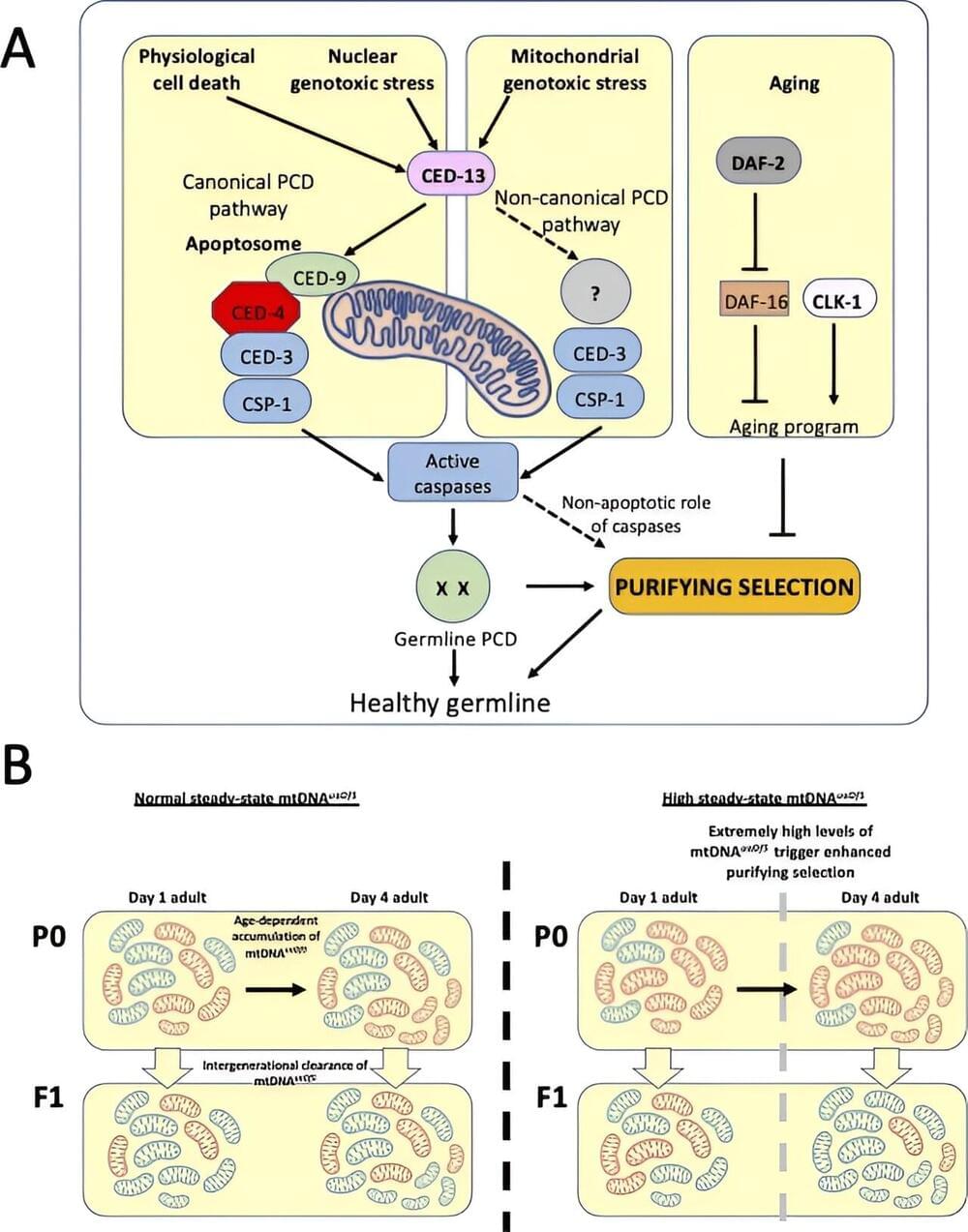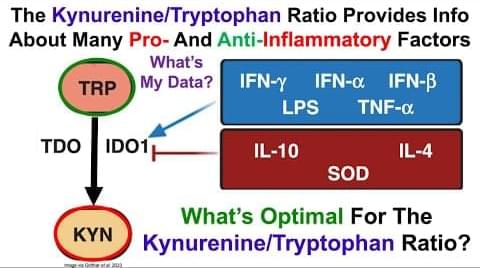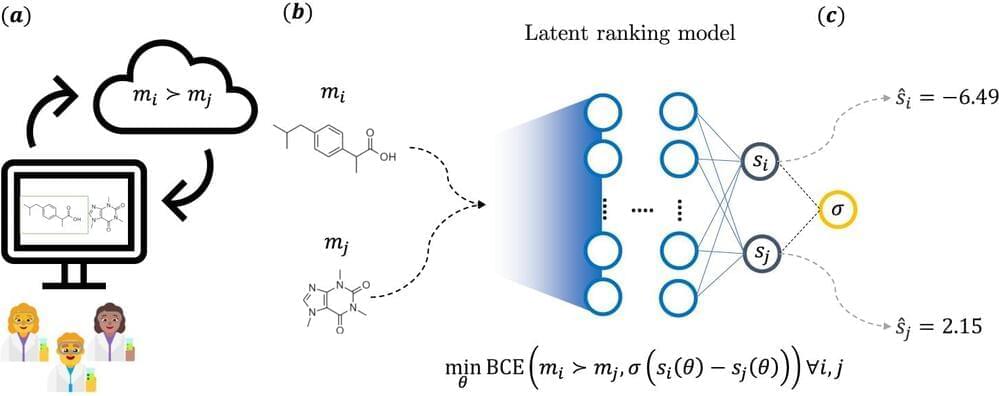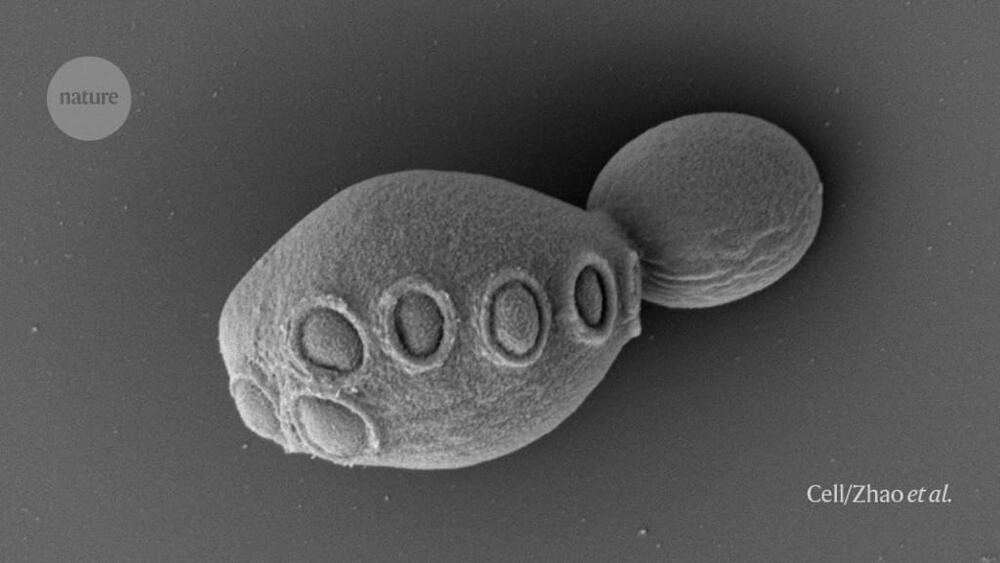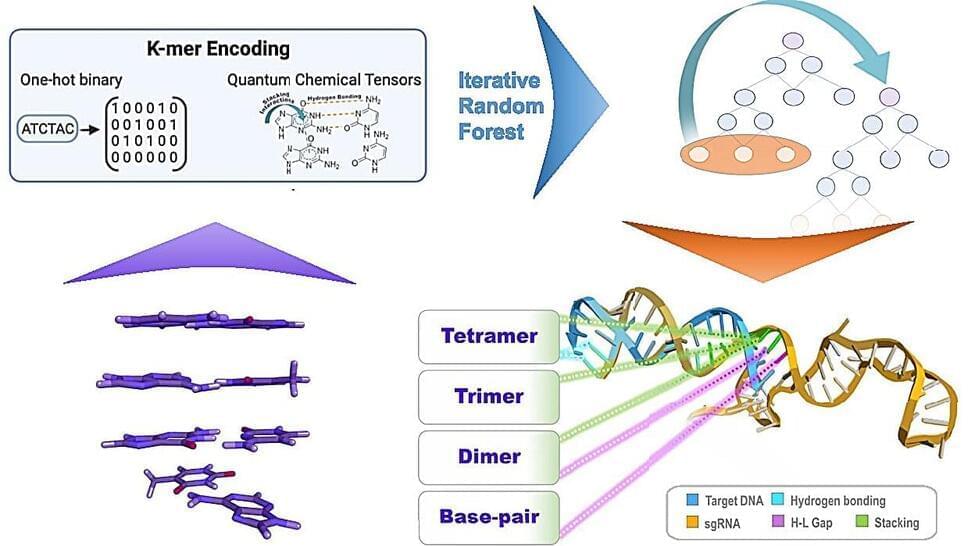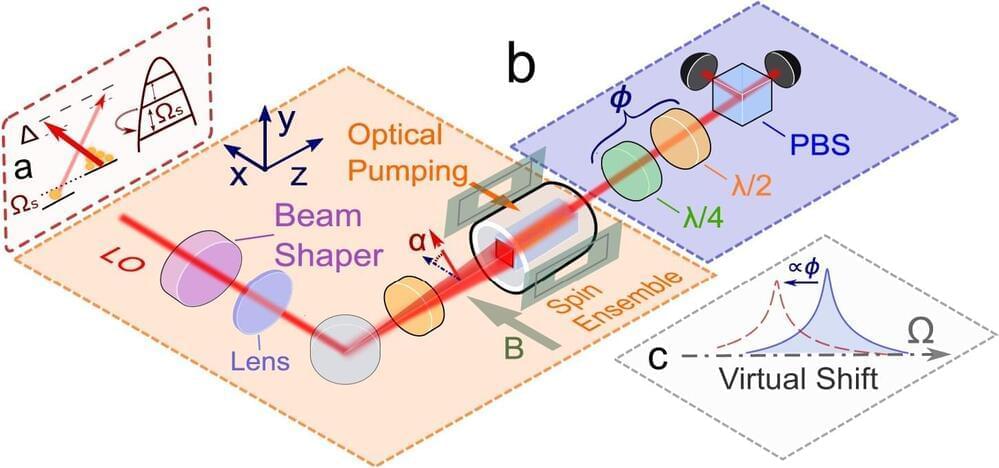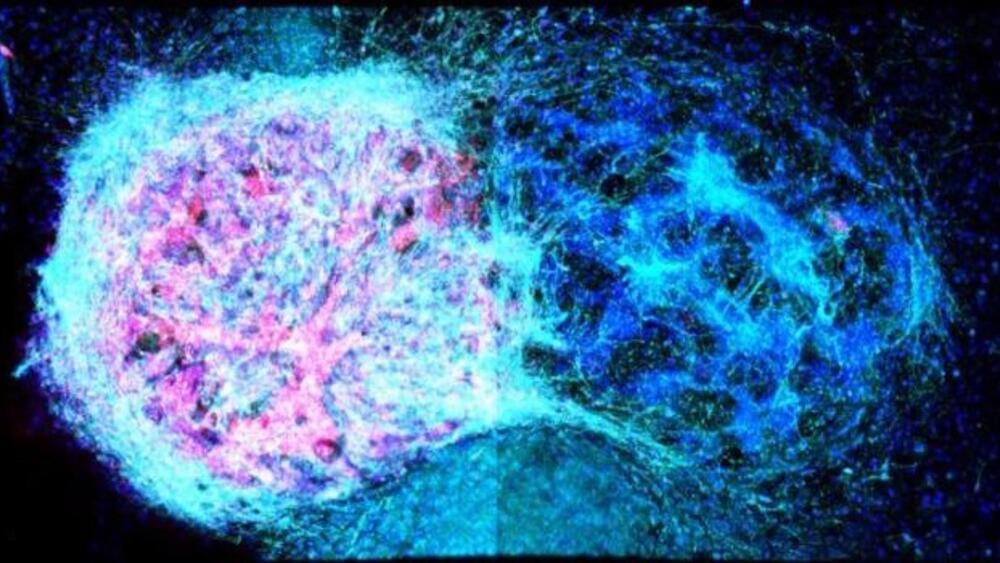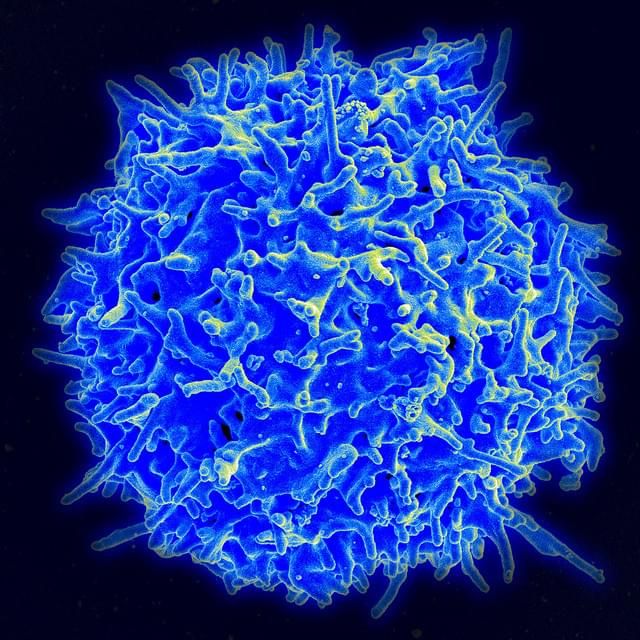Nov 9, 2023
Zen and the art of mitochondrial maintenance: The machinery of death makes a healthier life
Posted by Saúl Morales Rodriguéz in categories: biotech/medical, health
While we all aspire for a long lifespan, what is most coveted is a long period of vigor and health, or “healthspan,” that precedes the inevitable decline of advancing age. Researchers at UC Santa Barbara have discovered that instruments of death that cells use to commit suicide when things go wrong contribute to making a longer and healthier life by revitalizing the specialized cellular compartments called mitochondria.
Mitochondria generate the energy for all of our activities, from movement to thought. These power plants inside our cells descended from what were once free-living bacteria.
“We are a sort of hybrid creature that arose from two independent evolutionary lineages: mitochondria, which were once bacteria, and the rest of the cell surrounding them,” notes Joel Rothman, a professor of molecular biology whose lab conducted the research.
